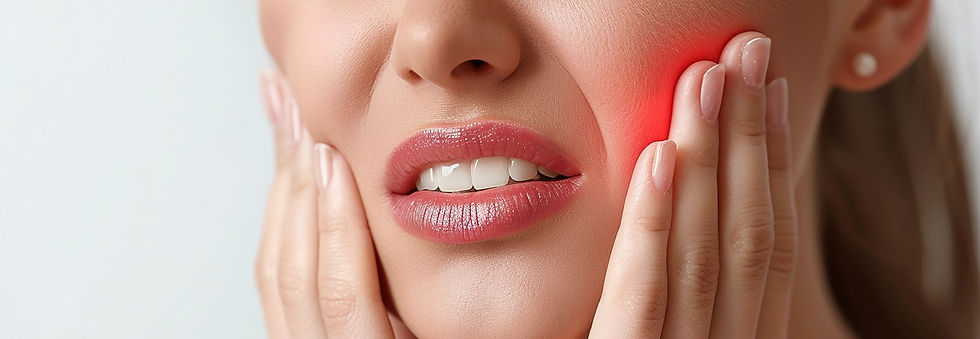PelviFloor is now Reform Plus Physiotherapy. Please be patient while we process our new name and update everything.
You can visit us at: https://reformplusphysio.ca/

TMJ DYSFUNCTION
TMJ (Jaw) Pain Treatment
TMJ dysfunction refers to issues with the temporomandibular join, the joint connecting your jaw to your skull which can cause jaw pain, clicking, headaches, and difficulty chewing. Physiotherapy aims to reduce pain, improve jaw mobility, and address contributing muscle tension and alignment issues.
What to Expect in Physiotherapy
Your physiotherapist will assess jaw movement, muscle tension, posture, and any related neck dysfunction. Treatment may include manual therapy to the jaw and surrounding muscles, gentle joint mobilizations, relaxation techniques, postural correction, and exercises to improve jaw control. You’ll also receive guidance on habits that may worsen TMJ symptoms, such as clenching or grinding.
Common TMJ Conditions Treated
Temporomandibular joint dysfunction (TMD)
Jaw clicking or locking
Myofascial pain affecting the jaw and neck
Bruxism (teeth grinding/clenching)
Headaches related to TMJ tension
Post-dental or surgical TMJ pain
Limited jaw opening or asymmetrical movement

